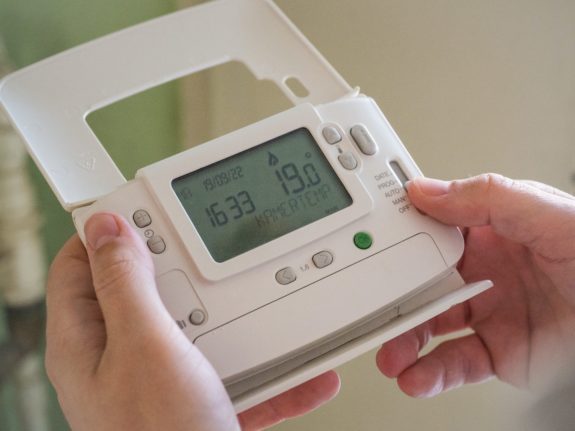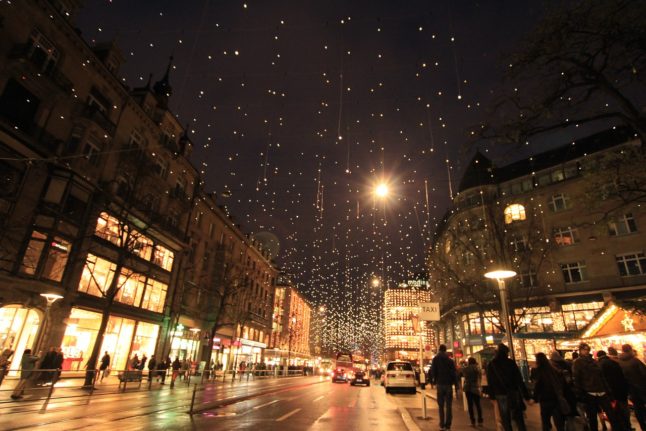The government announced in September that electricity prices will rise by a hefty 18 percent on average in 2024.
Tariffs could be even higher than the national average in various cantons and municipalities. For instance, Zurich residents can expect a 24.5-percent increase, in Geneva rates will go by 28.6 percent, and in Vaud, which has many electricity suppliers, hikes will range from 32 to over 40 percent.
READ ALSO: Swiss government announces new electricity rate hike of 18 percent
This official map shows by how much electricity prices will go up in your community.
However, higher prices and don’t eliminate the need to heat our homes during the coldest months of the year.
So when should you start heating?
While this wasn’t a concern during the summer heatwave — when most people were trying to find ways to cool off, not to get warmer — or at the beginning of October when the weather was still mild, it is an issue now that the weather has gotten colder in much of Switzerland.
When you can start turning on the heat depends on whether you are a tenant or a homeowner.
In the former case, you pretty much depend on your landlord.
The usual heating season in Switzerland, according to Homegate real estate plarform, runs from mid-September to mid-May, which means it is currently underway.
However, “as soon as the outside temperature drops below 14C, landlords are required to switch on the heating”, even if this happens before September 15th and after mid-May.
If, on the other hand, you own your home or apartment, you obviously have more leeway in terms of when you start and stop to heat your dwelling.
Generally speaking, the September-to-May rule carries some flexibility too. For instance, if you live in Ticino, temperatures may not drop below 14C until the end of autumn, so you may not need to heat your place as early as someone in, say, in the village of La Brévine near Neuchâtel, which is the coldest commune in the country.
What should you do if your landlord doesn’t turn on the heat on time?
According to Swiss Tenants Association (ASLOCA), you should complain to your landlord by a registered letter.
In the meantime, and for as long as there is no heat, you are entitled to request (and obtain) a reduction in rent to go into effect from the moment the landlord is notified of the situation.
At what temperature should your apartment or house be this winter?
While the threat of energy shortages is not as dire currently as it was in 2022, we are not totally out of the woods yet, and saving energy is a good idea regardless of the situation.
Government guidelines recommend that the room temperature should never exceed 20C. By reducing it by 1C, you save up to 10 percent of heating energy.
Also, the above temperatures generally apply from 7 am to 11 pm; the heating can be lowered at night to reduce fuel consumption.
The general consensus among experts, however, is that by lowering the indoor temperature to 19C, you could reduce your consumption (and bills) by 5 to 6 percent.



 Please whitelist us to continue reading.
Please whitelist us to continue reading.
Member comments